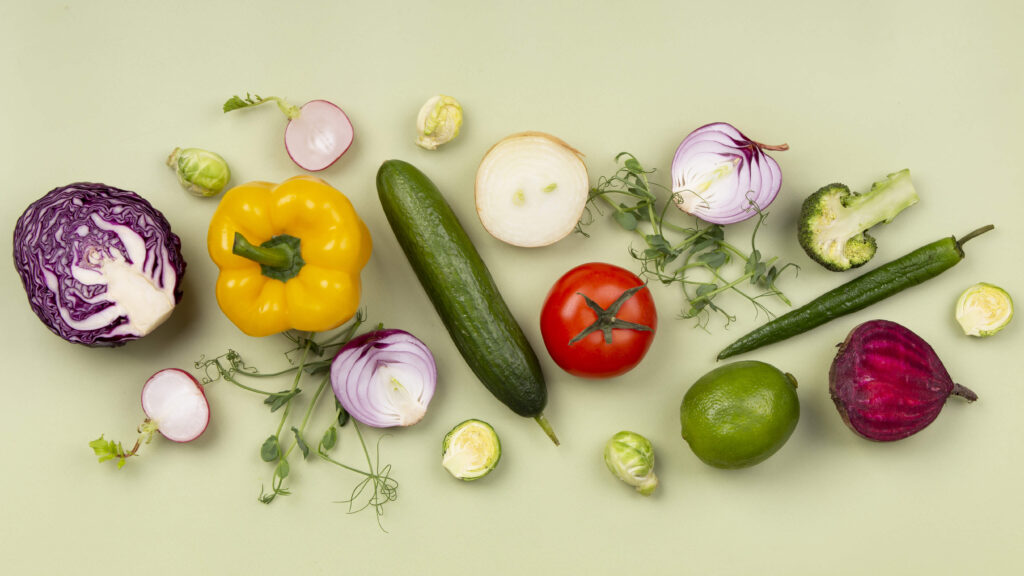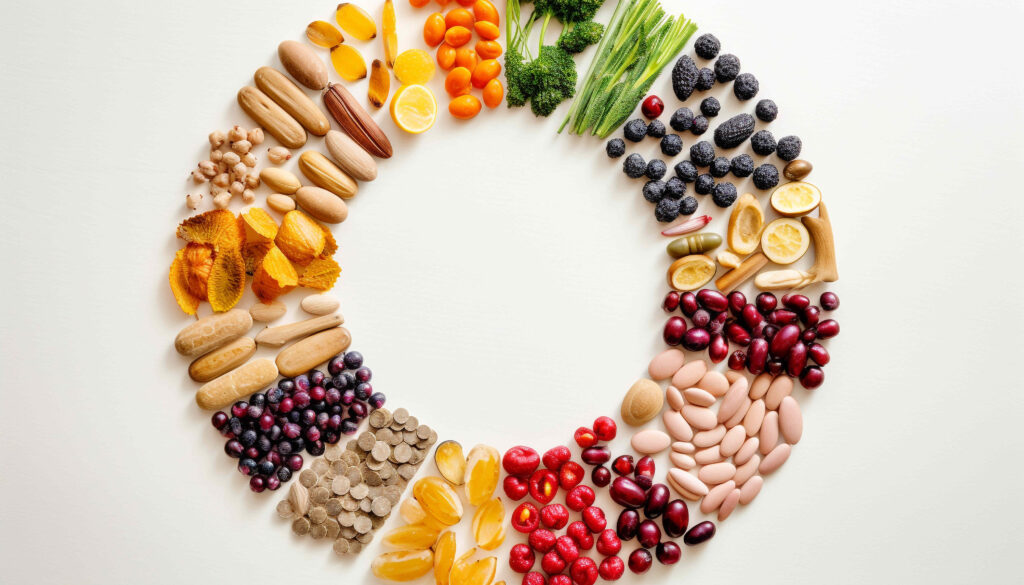How Do Ultraprocessed Foods Affect the Gut?

Ultraprocessed foods have become a major part of modern diets, yet very few people understand how deeply these products influence digestion and the microbiome. This article explores how ultra processed foods interact with the gut, why they disrupt microbial balance and what you can do to reduce their impact. You will also learn which ultra processed foods to avoid, how to recognize them and which gut-friendly choices support long-term digestive health.

What Is Ultra Processed Food and Why It’s Different
Understanding what is ultra processed food helps explain why it affects the gut so strongly. According to the NOVA food classification, ultra processed foods are products created mostly from isolated ingredients, refined compounds, extracted sugars, industrial oils and additives designed to extend shelf life or alter texture. They rarely resemble whole foods and offer minimal natural fiber, enzymes or beneficial compounds that support digestion.
When comparing processed vs ultra processed food, the difference is not simply about packaging. Lightly processed foods, such as frozen vegetables or canned beans, remain nutritionally intact. Ultra processed foods, on the other hand, undergo extensive formulation. They contain elements that your gut microbiome does not recognize as real food, which is one of the key reasons they disrupt microbial balance.
Common Ultraprocessed Food Examples (And Why They’re Everywhere)
Many people think of fast food as the only culprit, but the reality is much broader. Below are frequently overlooked ultraprocessed food examples that appear in everyday meals:
- Flavored yogurts with stabilizers and sweeteners
- Breakfast cereals with extruded grains
- Industrial breads made with conditioners and emulsifiers
- Chicken nuggets, deli meats and processed sausages
- Protein bars with synthetic fibers
- Sweetened plant milks
- Ready meals containing long ingredient lists
Most of these products appear on any ultraprocessed food list because they are engineered to be inexpensive, hyper palatable and convenient. That is why they dominate supermarket shelves.

Consumers often search for a list of ultraprocessed food online or browse ultra processed food news to understand which products to avoid, but what matters more is learning how these foods act inside the gut.
How Ultra Processed Foods Affect the Gut Microbiome
Ultra processed foods influence gut health through several mechanisms that are not always visible at first glance.
1. They Reduce Microbial Diversity
A healthy gut microbiome relies on diverse fibers and natural plant compounds. Ultra processed foods are usually low in fiber and high in refined carbohydrates. This imbalance encourages a narrow set of bacteria to grow while suppressing others. Over time, this reduces microbial diversity, which is a core pillar of digestive resilience and immune function.
2. Additives Interfere With the Gut Barrier
Many ultra processed foods contain emulsifiers, preservatives, artificial sweeteners and texturizers that the gut lining must work hard to process. Some studies suggest certain additives may weaken the mucus layer that protects the intestines. This can increase sensitivity and contribute to symptoms like bloating or discomfort.
3. They Change the Speed of Digestion
Emulsified textures and pre-gelatinized starches speed up absorption and flatten the natural rhythm of digestion. The gut thrives on foods that take time to break down because slow digestion gives beneficial bacteria space to act. Quick-digesting formulations may leave the gut under-stimulated.
4. They Promote Low-Grade Inflammation
Ultra processed foods are often made with refined vegetable oils and compounds created during high-temperature processing. These can contribute to inflammation that affects the gut lining and disrupts microbial signaling. This mechanism is rarely discussed in common articles but is increasingly recognized in research.
5. They Reduce Your Exposure to Naturally Fermented Foods
When the diet is dominated by ultra processed items, there is less room for the nutrient-dense foods that nourish the microbiome. Fermented vegetables, kefir, unsweetened yogurt and sourdough all provide beneficial microbes, but they appear less often in ultra processed diets.

Hidden Mechanisms: What We Don’t See in Ultra Processed Food News
Media headlines often highlight sugar or calories, yet the most meaningful effects are molecular. Ultra processed foods undergo chemical and physical transformations that alter the structure of proteins and starches. These altered structures may behave differently in the digestive tract compared to whole-food versions.
Another overlooked factor is the concept of the “food matrix.” Whole foods have a natural structure that slows digestion, stabilizes blood sugar and delivers nutrients progressively. Ultra processed products often have broken or reconfigured matrices, leading to exaggerated metabolic responses that indirectly influence the gut.
This nuance is rarely discussed in mainstream ultra processed food news, but it is one of the clearest reasons why these products strain the gastrointestinal system.
Ultra Processed Foods to Avoid
Not all ultra processed foods affect the gut equally. These categories appear consistently across scientific reviews as the most disruptive:
- Foods with added emulsifiers, including certain industrial breads and ice creams
- Meat products containing nitrites and multiple stabilizers
- Extruded snacks and cereals
- Sweetened beverages and flavored milk alternatives
- Ready meals with long ingredient lists and synthetic additives
These are key ultra processed foods to avoid when the goal is to protect gut health.
Gut-Friendly Swaps: What to Choose Instead
You do not need to eliminate all convenience foods. What matters is shifting toward choices that preserve microbial balance. Below is a simple comparison table you can place inside the blog:
| Ultra Processed Choice | Gut-Friendly Swap |
|---|---|
| Extruded breakfast cereal | Oats with seeds and fruit |
| Sweetened flavored yogurt | Plain yogurt with berries |
| Processed deli meat | Grilled chicken or legumes |
| Ready-to-eat meals | Batch-cooked whole-food bowls |
| Sweetened beverages | Kombucha or infused water |
If you want to support the gut even further, you can introduce products designed to nourish the microbiome. For example, our gut-balancing formula provides strains scientifically selected to support microbial diversity, which can be especially helpful for people transitioning away from ultra processed foods.

Mini Quiz: Can You Identify an Ultraprocessed Food?
1. Which option is most likely to contain emulsifiers?
A) Fresh salmon
B) Prepackaged ice cream
C) Raw almonds
2. Which product fits the NOVA definition of ultra processed?
A) Sourdough bread
B) Microwaveable lasagna with stabilizers
C) Frozen berries
3. Which beverage has the highest chance of synthetic additives?
A) Water
B) Kombucha
C) Flavored oat milk
(Answers: 1-B, 2-B, 3-C)
Understanding Ultraprocessed Foods Helps Protect Your Gut
Ultra processed foods are engineered for convenience, not microbial harmony. They reduce microbial diversity, strain the gut barrier and limit exposure to the natural fibers and compounds the gut relies on. By learning to recognize these products and making small daily swaps, you support your microbiome’s ability to function optimally. Even gradual changes can help restore balance, especially when combined with supportive foods, fermented options and targeted microbiome products.
Related articles



